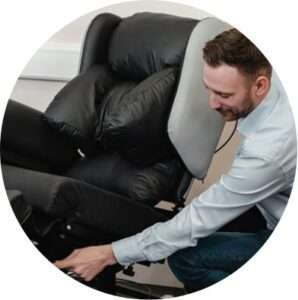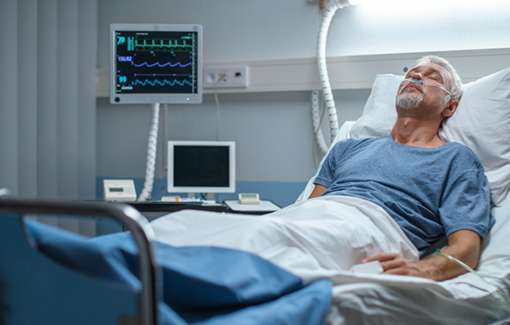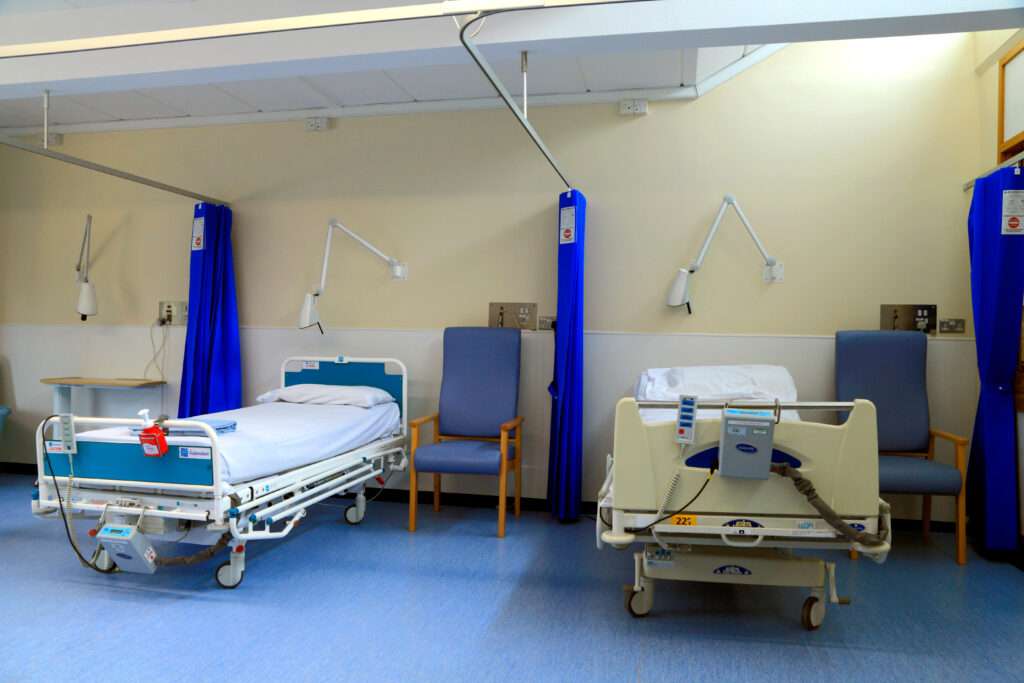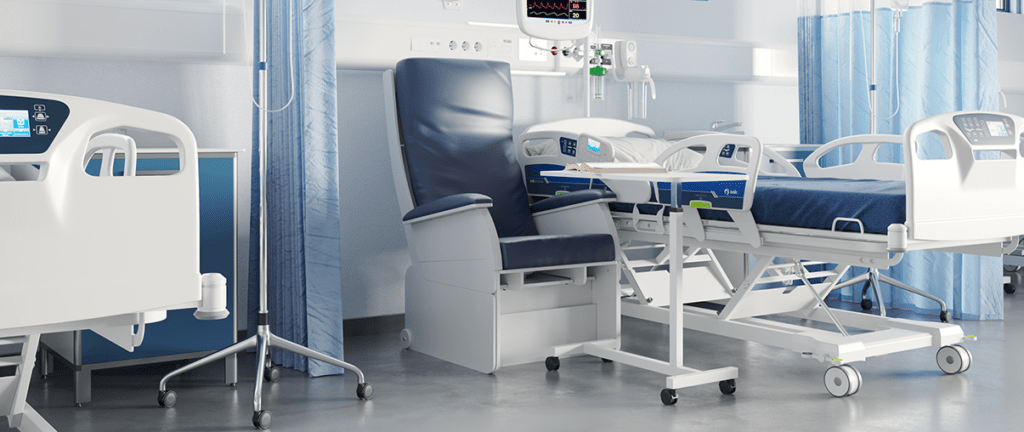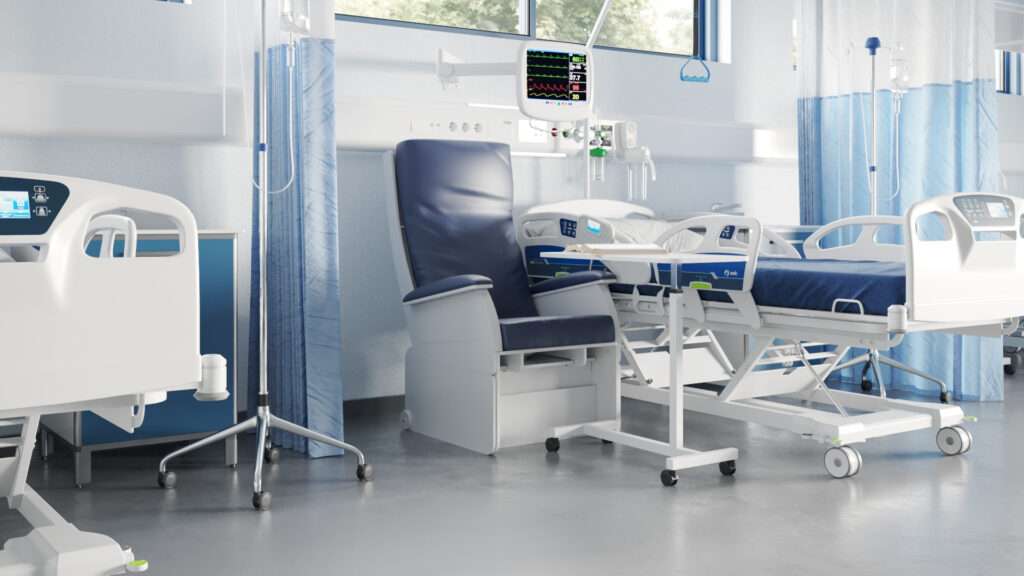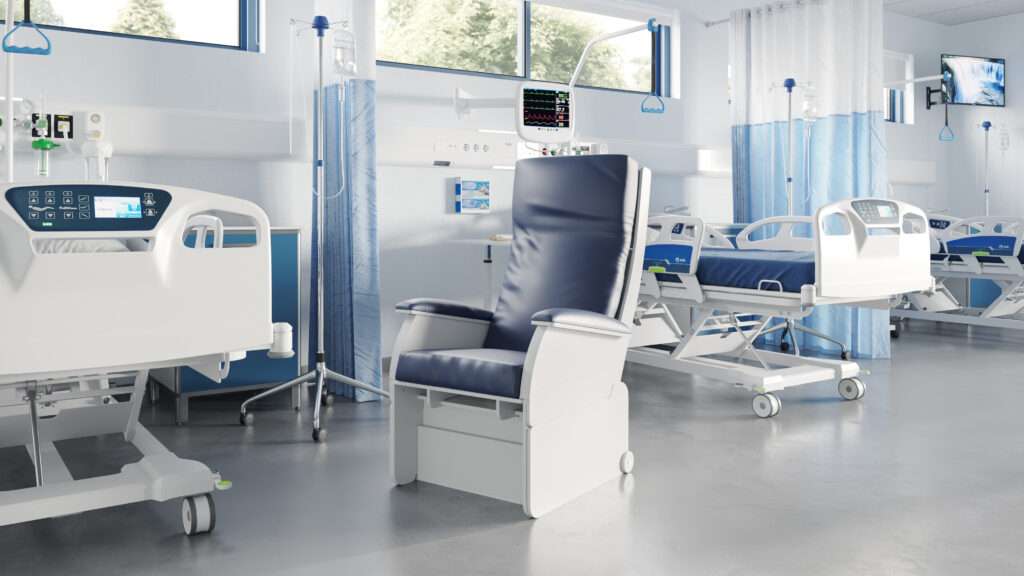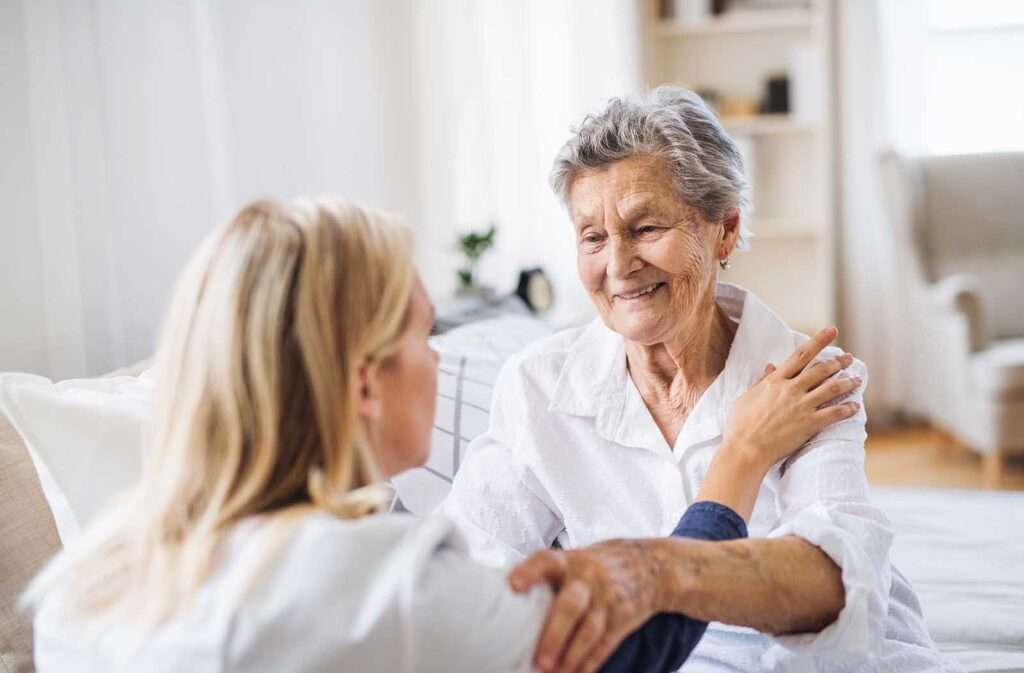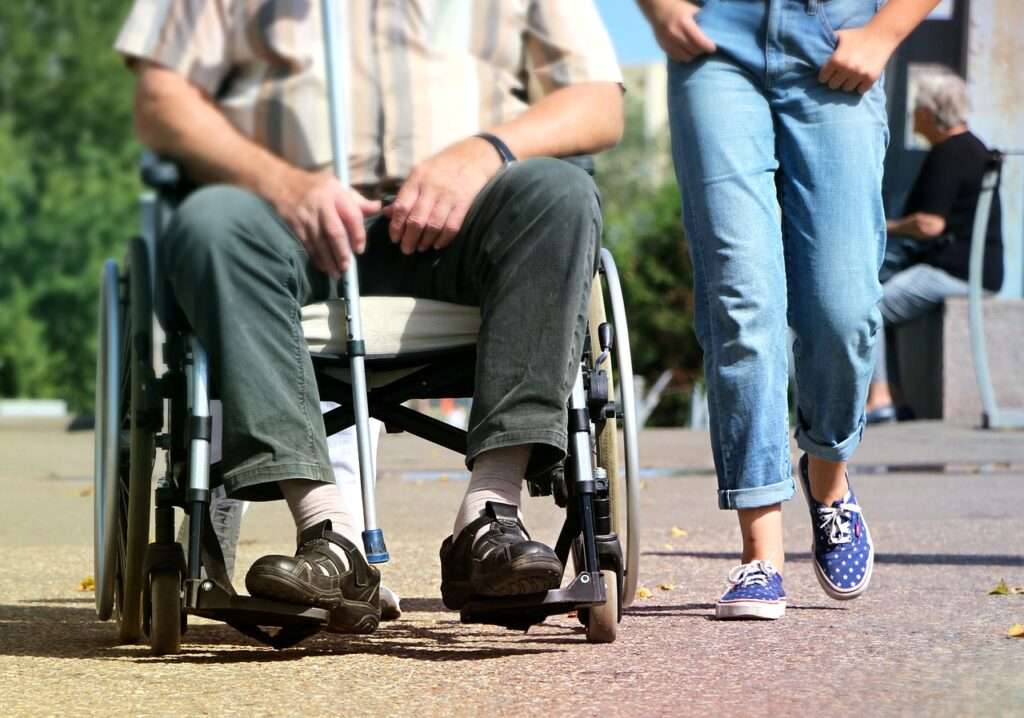By now, we’re all sadly well aware of the problems that COVID-19 can cause. Across the world, we’ve seen the devastating impact on individual health, families, hospitals and businesses. However, one issue we seem to be less aware of is the after-effects of COVID — otherwise known as ‘long COVID’ or ‘post-COVID syndrome’.
The UK is currently recording an average of 45,000 new cases of Coronavirus every day. It is estimated that 1 in 20 of those people will go on to experience long COVID. That means that every day, the UK is getting around another 2,250 people who will need support for long Covid.
So, what are the long COVID symptoms? How can we help? What treatment can we prescribe to help those living with the after-effects of COVID? Here are some recent insights and suggestions that can help to promote independence and rehabilitation.
Jump straight to…
What is long COVID?
Long COVID or post-COVID syndrome refers to any long-term symptoms experienced by those who have had Coronavirus.
In severe initial cases, COVID can cause long-lasting health complications such as pneumonia, fatigue, or other respiratory conditions.
However, many people who were not hospitalised with COVID-19 and experienced mild initial symptoms also seem to be affected by Long COVID.
A 33-year old woman shared an honest account of her experiences:
“I felt as if my whole body was just filled with lead, but at the same time I had this sort of painful burning situation, and it also made my heart rate just shoot through the roof. I have such bad brain fog it “fills” my brain leaving me unable to think.”
How long does it last?
As of yet, not enough research has been conducted to work out how long people with post-COVID syndrome might suffer from symptoms.
However, research into other viruses indicates that the symptoms may last as long as six months.
Unfortunately, early research has indicated that long COVID can also cause permanent lung damage. The condition has also been linked with an increased risk of strokes, heart attacks, deep vein thrombosis, and blood clots.
The NHS website is currently being updated weekly as more information emerges: https://www.nhs.uk/conditions/coronavirus-covid-19/long-term-effects-of-coronavirus-long-covid/
Understanding Long COVID
We recently delivered a webinar on ‘Understanding Long COVID: Managing Client Symptoms & Supporting Recovery’.
It gives an overview of everything we know so far about the condition. As well as exploring the treatment options and resources available for those living with Long COVID.
You can watch the full recording here:
What are the symptoms of Long COVID?
Many Long COVID symptoms are the same as in COVID-19 cases. Whilst an initial case of COVID is usually associated with acute symptoms, like a fever and a cough, Long COVID is characterised by longer-lasting symptoms.
This may include things like:
- Breathlessness
- Palpitations
- Fatigue
- Chest pains
- Joint or muscle aches
- Anxiety and depression
- ‘Brain fog’ — not being able to concentrate or think straight
Even just one, or a combination of these things could indicate that someone is suffering from the after-effects of COVID.
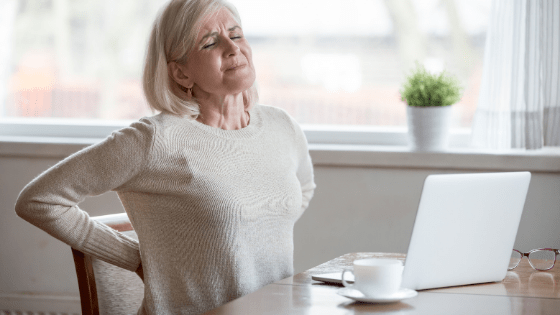
The most commonly reported ongoing symptoms–regardless of hospitalisation status–were fatigue (98%), muscle ache (88%), shortness of breath (87%), and headache (83%). via BMJ
These symptoms can be detrimental to someone’s quality of life for a number of reasons, affecting their mental health, ability to work, and their general physical wellbeing.
Who is most likely to get long Covid?
Although research is still relatively new, there have been a few factors identified that could put people at a higher risk of suffering with long COVID.
We know that COVID-19 itself can affect people of any age, with many young, generally healthy people being diagnosed. However, a recent study has shown that long COVID appears to be more prominent in older people who experienced more symptoms in their initial bout with COVID.
Age & Sex
Older people and women have shown to be more susceptible to long COVID.
Here are some key stats from research by King’s College London:
- 10% of 18—49-year-olds who contract COVID-19 end up with long COVID
- This number increases the 22% for those who are over 70.
- Younger women are 50% more likely than younger men to suffer from the virus long-term.
38-year-old Dr Nathalie McDermott recently spoke about her experiences with long COVID and believes that it may have damaged her spinal cord.
Those with a higher BMI also have a slightly higher chance of developing long COVID.
Is there a treatment for long COVID?
It’s difficult to give a definitive treatment for long COVID at this stage. Research is still ongoing. Plus, the condition presents so differently in each person.
From what we know of it so far, there are ways to manage the various long COVID symptoms. However, a full treatment plan can only be prescribed on a case-by-case basis.
Here are three key areas of long COVID treatment that we have identified, and you might want to consider.
Treating Effects on Mental Health
Throughout these uncertain times, everyone’s mental health is being put to the test. But for those who are suffering from long COVID, it can be particularly challenging to remain upbeat and positive when facing a long-term illness that isn’t easily remedied.
There are some support groups and helplines available for those who might just need a chat:
- NHS Volunteers Service – A telephone service where people can ring in for a chat. This is great for individuals feeling isolated or suffering from more serious mental health issues. Just call 0808 196 3646 any day between 8am and 8pm.
- Mind – A mental health charity that does a lot of great work to raise awareness of mental health issues. They are currently offering helplines and advice for anyone who feels they need it. Plus, they offer useful guides for talking to your GP and remote counselling sessions.
Treating Physical Symptoms
You can treat the individual symptoms of long Covid to help alleviate any discomfort. With some of the more common symptoms being chronic fatigue and brain fog, it’s easy to let these symptoms offset your physical progress.
The 3 Ps Principle
The official advice by the Royal College of Occupational Therapy is to use the 3 Ps approach to long COVID treatment:
- Pace – Slow down and take your time completing tasks.
- Plan – Think ahead to spread out activities you find draining throughout the week.
- Prioritise – Does this really need doing today? If not, wait or ask someone else to help.
Many occupational therapists are using these principles to help people conserve energy. Using energy wisely throughout the day to push your endurance and fatigue without suffering.
Use Care Equipment & Household Aids
Don’t let breathlessness put you off all activity — you need to keep using your muscles to stay strong.
Combining care equipment with the 3 Ps can give you the support you need to stay independent and begin rehabilitation.
Here are some useful aids for around the house:
Walking Aids
If you tire after just a few steps, use a walking stick or a zimmer frame to rest on when needed.
Stools & Activity Chairs
A simple perching stool can be helpful for resting between activities.
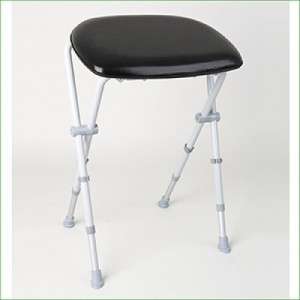
Foldable Perching Stool – from £84.92
The Vela activity chair would also be a good option to help you move around your home without too much effort or exertion.
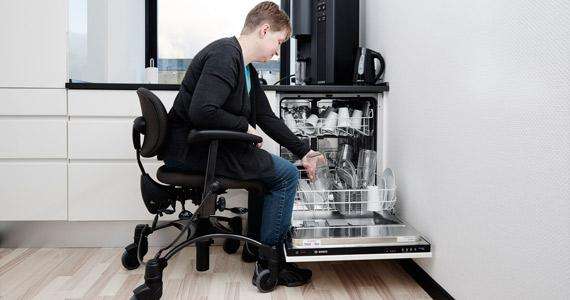
This unique chair has been designed for carrying out household chairs. You can remain comfortably seated whilst washing up or doing laundry. This is ideal when you’re already pushing yourself physically in your long COVID recovery.
Riser Recliner Chairs
Riser recliner chairs are useful in helping get you back to your feet when you don’t have the energy to stand.
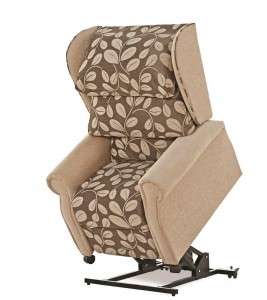
If you’re experiencing muscle weakness or joint pain, having a rise and recline chair can give you peace of mind that you will be comfortable, supported, and able to move between a seated and standing position.
We have a range of riser recliners available to hire.
Shower Chairs
Standing up in the shower can be particularly tiring for someone with long COVID. Not only are you on your feet, but you may also be struggling to breathe through the steam and humidity.
A shower chair or stool could provide some relief and help you to remain independent and supported in their recovery.
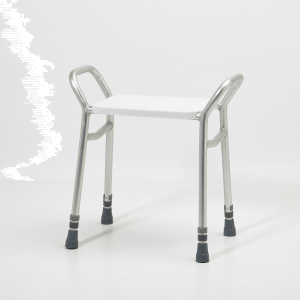
Adjustable Shower Stool – from £62.45
Getting back to work
One of the biggest concerns we’ve heard from people experiencing Long COVID is “When can I get back to work?”
Our honest advice – try not to rush back to work if you don’t need to.
But, when the time does come, here are some tips to make the transition back to work easier:
- Work from home – Many offices now offer work from home schemes or a mixed schedule. So, you might not have to travel in every day.
- Get a workplace assessment – You should speak to your doctor or an occupational therapist about any adaptations your workplace may need for you to return. This could be something as simple as a designated room where you can rest, or specialist equipment that you can work comfortably with.
- Work reduced or flexible hours – Discuss options with your boss or manager. If you’ve suffered from long COVID, you may still feel the after-effects for some time to come. It’s important that your employer is made aware of how much the illness has affected you and your workflow.
You might find that one day in the office knocks you out for the rest of the week — try and come to a healthy, achievable schedule with your place of work that will support your recovery.
For further information, read our dedicated Guide to Returning to Work after long COVID.
What if I don’t work in an office?
If your work isn’t office-based, then it might be harder to put some of these arrangements in place.
Try and be open and transparent with your employer about the level of physical activity you can do before you’re fatigued. Chronic fatigue can continue on for months after contracting COVID. Pushing yourself too far and too soon could be detrimental to your recovery.
Again, get the advice of your doctor if necessary to help your workplace put together an achievable plan for your return.
Summary
Although research on long COVID is still relatively underdeveloped, there are some solutions and ideas being used to help people regain their independence and quality of life in recovery. Each person should be treated individually, depending on their own physical and mental health needs.
You might come across someone who needs a full treatment plan putting in place, or you might work with someone who might benefit from a few pieces of specialist equipment. What’s important is that you can work with them individually to prescribe the best solutions.
We’re constantly working with healthcare professionals to identify long COVID treatment solutions that will help you and the people around you. Whether it’s something as small as a walking stick, or a video call to find the perfect piece of equipment, we’re here to help and we’re always following the government guidelines.
For more advice or help with specialist equipment for long COVID, get in touch with our team.



